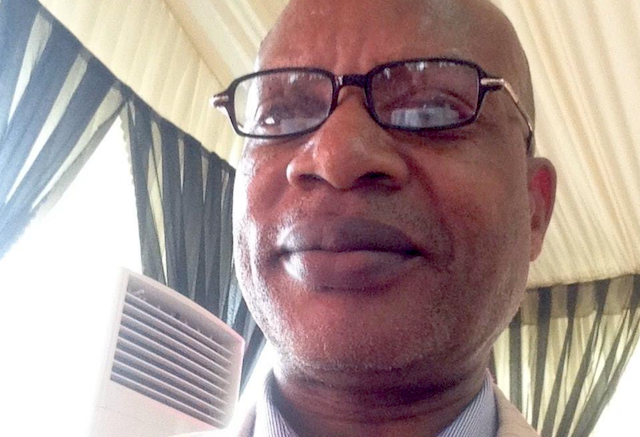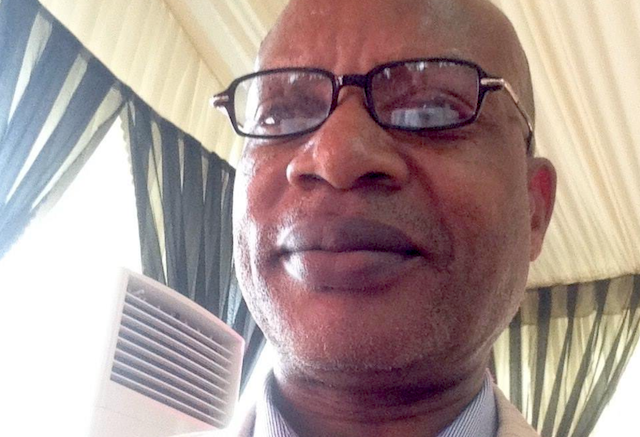Rivers State Governor Siminalayi Fubara’s made the world to believe that his predecessor and Minister of the Federal Capital Territory (FCT), Abuja, Chief Nyesom Wike, is the architect and purveyor of the political crisis in the state. He’s used every opportune moment to drum this narrative for the consumption of a sympathetic public.
Fubara struck a similar cord lately, at the heat of the contentious and bloody October 5, 2024, local government council election that’s resisted and boycotted by the Wike faction of the ruling Peoples Democratic Party (PDP), and the opposition All Progressives Congress (APC) in the state.
Appearing on a Channels Television’s ‘Politics Today’ on Monday, October 7, Fubara advised Wike to let go of his grip on the Rivers polity, “for the sake of the good people of Rivers State, and the love that you (Wike) have always professed for the state.”
On the alleged breach of a “gentleman’s agreement” he’d entered into with Wike to secure his “anointing and endorsement” as the PDP candidate for the March 18, 2023, governorship, Fubara said he’d kept all “understanding” with Wike, and lounged into his talking point of how he’d repeatedly knelt down for Wike for peace to reign in Rivers.
“There is nothing I have not done on this earth for peace to reign. I can tell you the number of times I have knelt to beg (Wike) that, let’s allow this issue to go. I have done everything,” Fubara said, even as continuously states, “I will not worship any human being but God” – indicating alleged Wike’s demand he (Fubara) should worship him, a charge Wike’s denied.
Fubara says he appreciates the fact that Wike played a pivotal role in his governorship, but that it’s God that used Wike as a vessel to fulfil His purpose, and so, only God deserves his (Fubara’s) worship, and not any human. He echoed this sentiment on May 16, 2024, during the inauguration of Egbeda internal roads, in Emohua local government area of Rivers.
Fubara said: “God can do anything He wants to do when He wants to do it. It is only for us to realise that God will not come down from Heaven but will pass through one man or woman to achieve His purpose. So, for that reason, when we act, we act as humans; human vessels that God has used, and not seeing yourself as God.
“I want to say this clearly, that we appreciate the role our leaders, most especially the immediate past governor (Wike) played. But that is not enough for me to worship a human being. I can’t do that.”
However, on May 11, 2024, in Ogu-Bolo, Rivers State, at a grand reception in honour of Chief George Thompson Sekibo for his 20 years of public service, Wike said he isn’t God, and as such, had never demanded that anybody should worship him. “Nobody can worship man. All of us believe that it is only God we will worship. (But) as politicians, we appreciate people who have helped us,” Wike said.
Asked on the Channels TV’s programme what his message to Wike would be if they met, Fubara said: “I’ll tell him that it has gotten to a point where he needs to let go. We need peace in this state. You don’t necessarily need to win all the fights; at times, you just let go for the sake of the good people of Rivers State and the love that you have always professed for the state.”
Noting that “election periods are over and it’s time for governance,” Fubara urged Wike to give peace a chance. “What I am appealing is: Everyone should sheathe their swords. Even to the Minister, my oga (my boss), there is no need to destroy this state. When it comes to the election period, you can fight and do whatever but now is the time for governance. We need all the support,” Fubara said.
“He (Wike) once ruled this state and the state was an envy of every other state. Another person (Fubara) is there now, (and) what we need is the support. After four years or eight years, who knows? I will also leave and someone else will take over. That should be the spirit. Fubara will leave tomorrow. Who knows who is going to come? It might be through him or another person but we need to secure the state.”
But does Fubara really desire peace in Rivers State? It doesn’t seem so! Otherwise, he should quit the baiting, the insulting, the denigrating, the rhetoric, and the labelling of Wike as “the enemy of Rivers State” – all done by Fubara to curry sympathy and secure the approval of the gaming public. You can’t be talking peace and at the same time be fanning the embers of war!
Fubara can stoop to conquer by embracing genuine reconciliation with Wike. For instance, what stops the governor from telling those beating the drums of war for him that, “Enough is enough, I’m going to make peace with Wike for the sake of Rivers State and its people?”
This shouldn’t be the kind of reconciliation that Fubara mouths regularly: That he’s knelt down a number of times to beg Wike, even as he (Fubara) threatens to deploy the “enormous powers that I have as Governor” to deal with the “enemies” of Rivers. That’s a Machiavellian approach, which “encourages leaders to lie, manipulate and use coercive persuasion to serve their own needs,” that hasn’t worked so far for the Fubara in solving the political problems on ground in Rivers.
Former Rivers APC’s governorship candidate in the 2023 General Election, Tonye Cole, weighing in on the political crisis in the state, has suggested a tell-ourselves-the-truth parley among the four governors that’ve ruled Rivers since 1999: Dr Peter Odili, Mr Chibuike Rotimi Amaechi, Chief Nyesom Wike and Mr Siminalayi Fubara to resolve the stalemate.
Speaking on Arise Television’s ‘Morning Show’ on October 8, Mr Cole said: “His Excellency ex-Governor Peter Odili, who is the father of this political dynamics, must sit at the table. His Excellency Rotimi Amaechi must sit at that table. Then Nyesom Wike, and Siminalayi Fubara must sit at that table.
“The President can superintend this if he really wants peace in Rivers State. And a decision must be made that this is how we are going to be moving forward. Until that is done, as soon as Fubara’s time is about to end, you will see an all-out war.”
This may not work due to the personal and partisan differences among the former governors and the incumbent. For example, Odili aligns with Fubara and alienates Amaechi and Wike; Amaechi’s sours on Odili, Wike and Fubara; Wike’s beef with Odili, Amaechi and Fubara; and Fubara and Wike are on a war path.
In such a scenario, who’ll call for the “sit-at-table” peace meeting? President Bola Tinubu would’ve fitted the bill, but he literally burnt his fingers the last time he attempted a truce between Fubara and Wike. The agreement, witnessed and signed by Odili, Fubara and Wike, among others, collapsed almost immediately it’s hashed out, with Fubara, who initially said the agreement “wasn’t a death sentence,” turning round to lebel it as political and not constitutional.
So, here’s a simple approach that’ll not only put Wike on his back foot, and induce him to return to the basic, but also push him to his wit’s end! Fubara should select some of the elders and leaders of the divide in Rivers, including the former governors, and inform Wike that he’s coming with a delegation on an agreed date, to fully reconcile with him. The ball will then be centrally placed in Wike’s court to either accept or refuse Fubara’s expressed desire for armistice between them.
Fubara’s offer of peace should be widely publicised in the media – different from his claimed behind-the-scences kneeling down to beg Wike – for maximum pressure and effect on Wike, and it’ll be well and good if the overture comes through! If doesn’t – in the event that Wike declines the invitation to reconcile, his current and intended political antics will be exposed as being the real masquerade behind the political turmoil in Rivers State, and Fubara will be vindicated at last.
All told, the “feat” Fubara achieved with the conduct of the local government council election hasn’t guaranteed a win over the war with Wike. Instead, he’s merely won the battle – a pyrrhic victory of some sorts – while the war remains. It’s still a dicey situation in which “a child doesn’t know when sleep takes food from their mouth” – depicting the futility of the “clever person” attempting to hold on to something that’s slipping away from them.
Fubara strives strenuously to exonerate himself from the crisis he’s helped engineer and sustain for a year now. That Rivers is going through the grinding mill is because of the governor’s failure to use tact and diplomacy in handling and dealing with Wike’s alleged overbearing influence on his government.
Agreed that Wike – amid strong opposition and resistance from even political leaders from Fubara’s homestead – worked on the recommendation of some Rivers leaders, and took Fubara from the civil service to the Government House, for which Fubara should be grateful, and accord Wike the respect he deserves within the ambit of personal relationship and official conduct.
Reciprocally, Wike should give Fubara the space to freely run his government, and not breath down his neck, as doing so portrays him as a “godfather” that exerts maximum loyalty from and punishment on their surrogates. That’s what Wike’s become, and as especially sold by Fubara to the public, which views the governor as the underdog, and backs his duel with Wike in the supremacy contest to control the political structure, power and resources of Rivers State.
But in his quest to crush and humiliate Wike over his appetite for “godfatherism,” Fubara’s committed numerous unforced errors, as he listens and tries to satisfy his supporters, who pressure him to man up and “show Wike that you’re the Governor of Rivers State.” It’s time Fubara ditched their selfish advice, and chart a different course that’ll genuinely ensure peace and security in Rivers!
Mr Ezomon, Journalist and Media Consultant, writes from Lagos, Nigeria.

